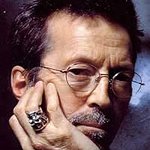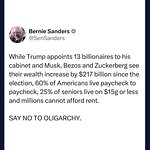By Tim Saunders on
Although regarded by many as one of the best rock and blues guitarists to ever live, Eric Clapton is a man who has suffered for his art. But the succession of addictions and the tragic personal dramas have not stopped the legend from becoming one of the most successful performers in the world today, and have fueled his desire to help those who face the same problems in their daily struggle to survive.
Clapton was born in 1945, in Surrey, England. He was raised by his grandmother and grew up believing his mother was actually his older sister – she was only 16 when he was born. He eventually found out the truth when he was 9 years old, and he took it hard. He became shy and lonely, and took solace in the only thing he could find stability in – blues music.
A proficiency with the guitar led the young teenager to join a band called The Yardbirds in 1963, and the group started to attract a large cult following when they took over the Rolling Stones’ residency at the Crawdaddy Club in Richmond. Clapton played on The Yardbirds first hit record, “For Your Love”, before leaving the band in 1965 due to their pop-orientated musical direction.
Before he left, however, Clapton started his long association with benefit concerts by joining Jeff Beck and Jimmy Page for a series of 12 gigs in support of Action For Research Into Multiple Sclerosis, a cause he has continued to support over the years.
A brief stint in “John Mayall and the Bluesbreakers” was followed by Clapton’s first shot at the big time – he formed “Cream” with Jack Bruce and Ginger Baker. A string of hits – such as “Sunshine of Your Love”, “White Room”, and “Crossroads” – was unleashed on a music scene where the likes of Jimi Hendrix and The Who were creating a psychedelic stir. Drugs fueled the industry, and Clapton started to feel their attractive lure. It was a relationship that was destined for disaster.
Cream disbanded in 1968, and Clapton spent his time in bands such as “Blind Faith” and “Derek And The Dominos”. He also found a solid friendship with George Harrison, guitarist for The Beatles.
By the time Clapton kicked off his solo career in 1970, he was drinking heavily and was addicted to heroin. His personality became erratic and his live shows suffered as a result. He became reclusive, only leaving his house to secure more drugs and to perform at the occasional benefit concert – during George Harrison’s Concert For Bangladesh in 1972, Clapton passed out on stage.
If something was not done quickly, Clapton’s friends could see that he would go the same way as Hendrix and many other stars caught up in the drug culture. Pete Townshend, guitarist for The Who, organized a comeback for Clapton to help him beat his addictions in 1973. Although Clapton returned to his art for the rest of the decade, releasing some of his greatest hits, he would not truly kick his alcohol and drug habits until the mid-1980s. He contemplated taking his own life on several occasions, but was only stopped by the realization that if he were dead, he would not be able to drink anymore.
“I thought there was something otherworldly about the whole culture of drinking, that being drunk made me a member of some strange, mysterious club,” Clapton told The Today Show recently. “The stuff that happened to me as a child made me totally insular — I thought I could do all of this on my own. It wasn’t until I was quite a bit older that I finally did ask for help.”
Help came through the continuing support of friends such as Phil Collins, who reestablished a love of music and a sense of self-worth in the artist. In 1989, after two decades of struggling to take control of his inner demons, Clapton declared himself sober and released “Journeyman”, a critically acclaimed album that proved he was back at the top of his game.
Throughout the 1990s, Clapton worked quietly to help others who had fallen into the dark world of addiction. In 1998, he opened the doors to the Crossroads Centre, a facility located on the beautiful Caribbean island of Antigua, dedicated to helping those who suffer from chemical abuse.
“My vision was to create a centre of the highest caliber to treat people of the Caribbean and throughout the world,” he said. "The centre would be staffed with experienced and internationally recognized professionals. The cost of treatment would be held to the lowest possible level, ensuring affordability and accessibility. And most importantly, this non-profit centre would provide treatment scholarships for people of the Caribbean region and around the world.
“Crossroads is like no other treatment centre. It is the perfect place to begin the road of recovery and utilizes a combination of effective therapies to address addiction and recovery, while capturing the spiritual serenity that many have found unique to Antigua. Within the serene, healing atmosphere individuals participate in a structured 29-day residential 12 step based program that allows clients to experience a whole person wellness approach to recovery.”
Since the Crossroads Centre was opened, Clapton has held two sales of his own guitars to raise money for the non-profit venture – which generated a total of $12 million – and he has also organized two Crossroads Guitar Festivals, featuring stars such as Sheryl Crow and Vince Gill. To kick off 2008, Clapton joined Pete Townshend, Ringo Starr, and Eagles guitarist Joe Walsh at a gig held in a bar in Surrey, to raise money for various Alcoholics Anonymous groups.
As a human being, Clapton will never forget the struggle to beat his addictions, but he believes the only way to get through it all is to keep moving forward.
“In the last couple of years there’s been more action in my life, and drama, than I would have wished for. But I think I’ve learned something from it all. I can’t say tangibly what it is, except that I’m happy to be me and to have survived.”
For more information on how to help those who suffer from addictions, visit www.crossroadsantigua.org.
Copyright © 2008 Look to the Stars






